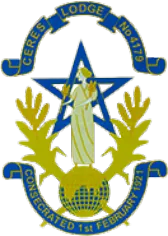The London Masons and the Masonic Charitable Foundation has donated £50,000 to London based specialist charity Autistica, to aid research and testing in the home environment of a widely used tool to help young autistic children communicate at school.
This new study is the first of its kind, led by parents, to assess the use of PECS, the Picture Exchange Communication System, in the home. The project celebrated recently with a visit to Queensmill School in Shepherds Bush, West London, a leading school for autistic children.
More than one in four autistic people speak few or no words. PECS, a series of picture cards, is widely used in schools for children with communication problems, and can help children make requests for important needs. This study is part-funded by London Freemasons, in addition to funding from a major donor and other small trusts and foundations.
Jo, whose son Freddie struggled to speak when he was younger, said: “We knew that intervening early was key to improving his communication skills but it felt like time was ticking to find something that worked. There was a lot of trial and error. I hope this research will mean other parents won’t have to face the same lack of guidance we did.”
Sixty four young children will take part in the study led by Dr. Vicky Slonims from the Evelina Children’s Hospital and King’s College London. Half will use PECS, half will not. Parents will record requests made by their children in an app and a small body camera will be worn by the child to show researchers how they are communicating. If PECS is found to be effective, it could become part of crucial early intervention training offered to parents of children with speech delays.
Dr. James Cusack, Director of Science at Autistica explains: “We’re very grateful to London Freemasons for their generous grant. When minimally verbal children reach school age, they can show very little improvement in speech of communication skills. It’s therefore essential that we give parents and children the evidence-based tools they need as early as possible.”
Adrian Fox from London Freemasons, visited Queensmill School with Autistica to celebrate the launch of the project, said “I’m really pleased we’ve been able to support this excellent project from Autistica. This is essential research that could transform the lives of thousands of autistic children and their families across the country and around the world. This is another example of Freemasons supporting the London community. This donation follows on from a £1,250,000 donation, of a £2.5 million funding pledge from London Freemasons to

